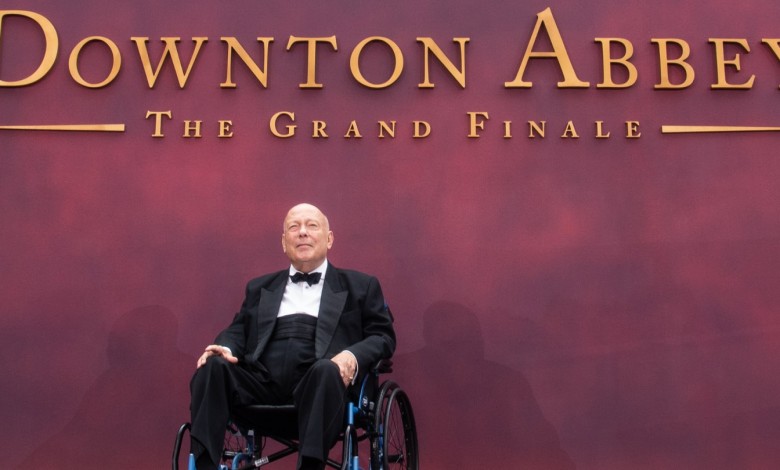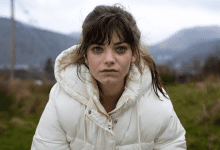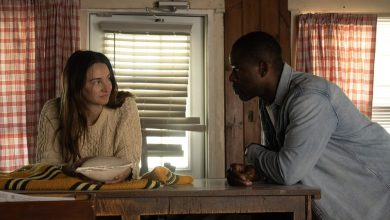Julian Fellowes Runs Us Through 15 Years of ‘Downton Abbey’

Julian Fellowes, a British actor-turned-writer-producer (and actual Lord), has a best original screenplay Oscar on his shelf for the 2001 murder mystery Gosford Park. The film was a hit in Hollywood and beyond, with the likes of Charles Dance, Stephen Fry, Michael Gambon, Helen Mirren, Richard E. Grant and Kristin Scott Thomas dazzling in the countryside-set whodunnit.
It was here, 25 years ago, Fellowes befriended beloved English actress Maggie Smith. “She saved my bacon a few times,” Fellowes recalls to The Hollywood Reporter about the late legend of stage and screen. He references a particular line of Smith’s that director Robert Altman wasn’t quite sure worked. Fellowes had deemed it one of his best, but soon found it speeding toward the chopping block. Until Smith stepped in and told Altman: “I think I can make it work, Bob.” The line made the final cut.
Fellowes is giggling as he remembers the moment, a story so indicative of Smith’s charm, while reflecting on his award-winning period behemoth Downton Abbey. He wrote all six seasons of the ITV and PBS show from 2010 and 2015, and subsequently adapted it for the big screen in the three movies that came after: Downton Abbey (2019), Downton Abbey: A New Era (2022) and Downton Abbey: The Grand Finale, in theaters now.
“I think we all felt that if there was a third film, we wanted it to be haunted by Maggie,” Fellowes continues about dedicating the third instalment to her (the movie ends on a lingering shot of Violet’s portrait looming over the main foyer). “There is a theme of Maggie going through the film, and then at the end, you see her when Mary is having all her flashbacks. I like that. She was an iconic figure… And that’s another reason to finish.” He describes Smith as “very faithful” to the script: “She doesn’t change [it] at all, and she’s got this gift where she can be very funny and five minutes later, make you cry. Not everyone has that.”

Maggie Smith in one of her more famous roles, Violet Crawley in ‘Downton Abbey.’
Courtesy of Everett Collection
In the latest film, the Crawleys are once again trying to catch up with a rapidly-changing world, one that is increasingly tiring of grand families like theirs. Mary (Michelle Dockery) is rediscovering her place in society after a scandal-producing divorce while Cora (Elizabeth McGovern) and Robert (Hugh Bonneville) are facing another financial crisis. Allen Leech, Laura Carmichael, Harry Hadden-Paton, Jim Carter, Penelope Wilton, Phyllis Logan, Raquel Cassidy, Brendan Coyle, Joanne Froggatt, Robert James-Collier, Sophie McShera, Lesley Nicol, Kevin Doyle all return, as well as Dominic West, Paul Giamatti and newcomer Alessandro Nivola.
“We always knew where we were heading,” says Fellowes about ending the franchise as he did, with Mary in full charge of Downton and her parents in the Dower House. “I’m not a fan of talcum powder hair and wobbly stick acting. To go on, we would be pushing our luck a bit and eventually be facing the Second World War.”
The 76-year-old says that to return to Downton would mean coming back “in a different time with different thinking, much later on in the century.” He added: “Plus, I think the actors had had enough — in the nicest way, there were a lot of good friendships and we’ll always meet as members of the Downton club… But I also feel that, in life, you must know when to let go of things, whether it’s professional or romantic or anything else. There is a moment when you think, ‘It’s time to bring this to an end.’ And I felt that about the show.”
Fellowes said he’s particularly thankful that Americans love Downton Abbey as they have. The show was relatively neglected by the British Academy — it never won a major competitive BAFTA — but saw monumental success across the pond, with 15 Emmys and 3 Golden Globes. “America made it a lovely experience,” he says. “People are just as entitled to dislike what you’ve made as they are entitled to like it. And I sometimes may have to remind myself of that a bit. But I felt a bit sad that in the country of origin, we couldn’t celebrate its success a bit more. So I was very grateful to the Americans for celebrating it as much as they did.”
Still, Downton Abbey is widely considered British television’s favorite period drama, and its popularity here in the U.K. cannot be overstated. Fellowes believes the secret sauce to be the show’s warmth and optimism. “People often ask me why I think the show was so popular, but I think one of the main reasons was that we liked Mrs. Patmore and we liked Violet Grantham.”

Allen Leech stars as Tom Branson and Michelle Dockery as Lady Mary in ‘Downton Abbey: The Grand Finale.’
Rory Mulvey/Focus Features
He continues: “If the show had been made in the ’50s, the family would have been gracious and charming and all the servants would have been comedic. If the same show were made in the ’90s, all the servants would have been victims, and the family would have been mendacious and cruel and unkind, but we didn’t go for either of those. We felt, consciously, that this was a group of people trying to do the best with what they’d been given.”
While Fellowes says he has no favorite characters, he singles out Smith and Dockery for being entirely unbothered by how likeable their characters were. “They couldn’t care less if they had a storyline where they were behaving badly or they were unsympathetic,” he smiles. “You’d be amazed by the number of quite grown-up actors who get into a tizzy if they have to be unsympathetic for five seconds.”
Three plot points jump out to Fellowes as his favorites from across the entire series and subsequent films. The first is Sybil’s death in season three: “Jessica [Brown Findlay] had always said, right from the beginning, ‘I’m doing three years then I’m leaving.’ There was nothing unpleasant involved,” he begins. But seeing Leech, as Sybil’s partner Tom Branson, improvise a line akin to “Stay with me,” had Fellowes in tears: “My wife and I were watching it. I was crying. She said to me, ‘You wrote it! What did you think was going to happen?’”
He also enjoyed Edith’s jilting in episode three, as well as a scene between a grieving Mary (shortly after Matthew’s shock death) and Violet. “My father, because my mother had died, he’d gone into a terrible slough of despond,” Fellowes explains. “He started to give in to everything. I took him to Florida for Christmas. I said to him: ‘You have to make this decision, do you want to live or do you want to die?’ and I put that into the show — again, you give this material to actors like Maggie and Michelle, and they surprise and delight you with what they do.”
The screenwriting legend has learned to “never say never” in showbiz, but he seems to have closed the stately doors on Downton for good. Now, it’s all systems go on the recently-confirmed season four of HBO’s The Gilded Age. “It’s harder than Downton. It’s a hard world,” he smiles about the New York City-set drama with Carrie Coon, Morgan Spector, Cynthia Nixon and Christine Baranski. “These are men and women on the make — so it has a different feeling, a different smell. But I think that’s good for me.”
Downton Abbey: The Grand Finale is in theaters now.
Source: Hollywoodreporter
HiCelebNews online magazine publishes interesting content every day in the movies section of the entertainment category. Follow us to read the latest news.
Related Posts
- TV Ratings: Emmy Awards Hit Four-Year High
- ‘Degrassi: Whatever It Takes’ World Premiere to Go Ahead as Legal Dispute Resolved
- Nate Bargatze’s Boys & Girls Clubs Emmys Bit Was Not as Bad as You Think
- Oldenburg Film Festival: Five Can’t-Miss Movies
- Bobby Hart, Co-Writer of ‘Last Train to Clarksville’ for The Monkees, Dies at 86





